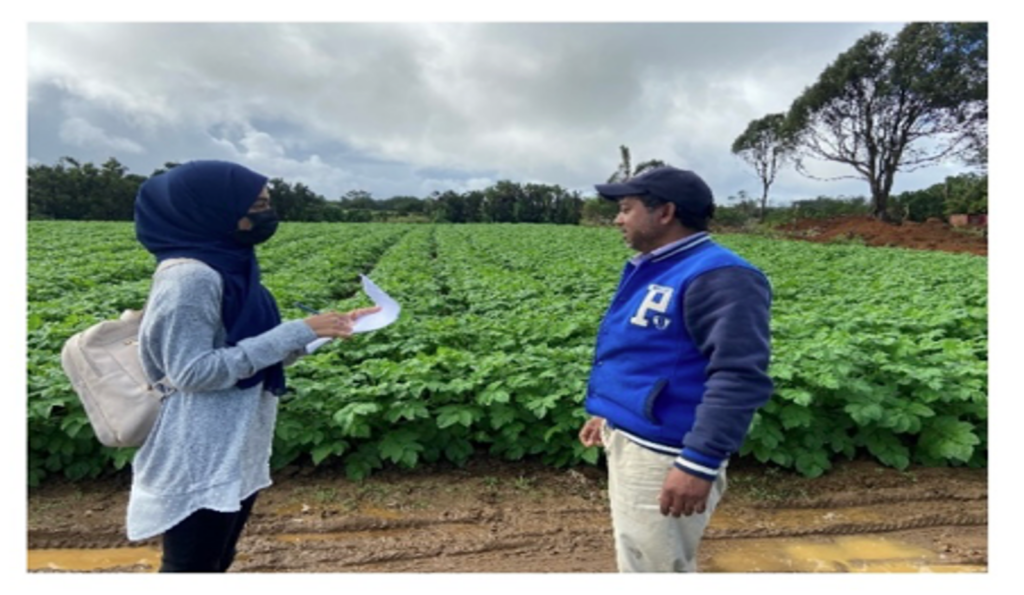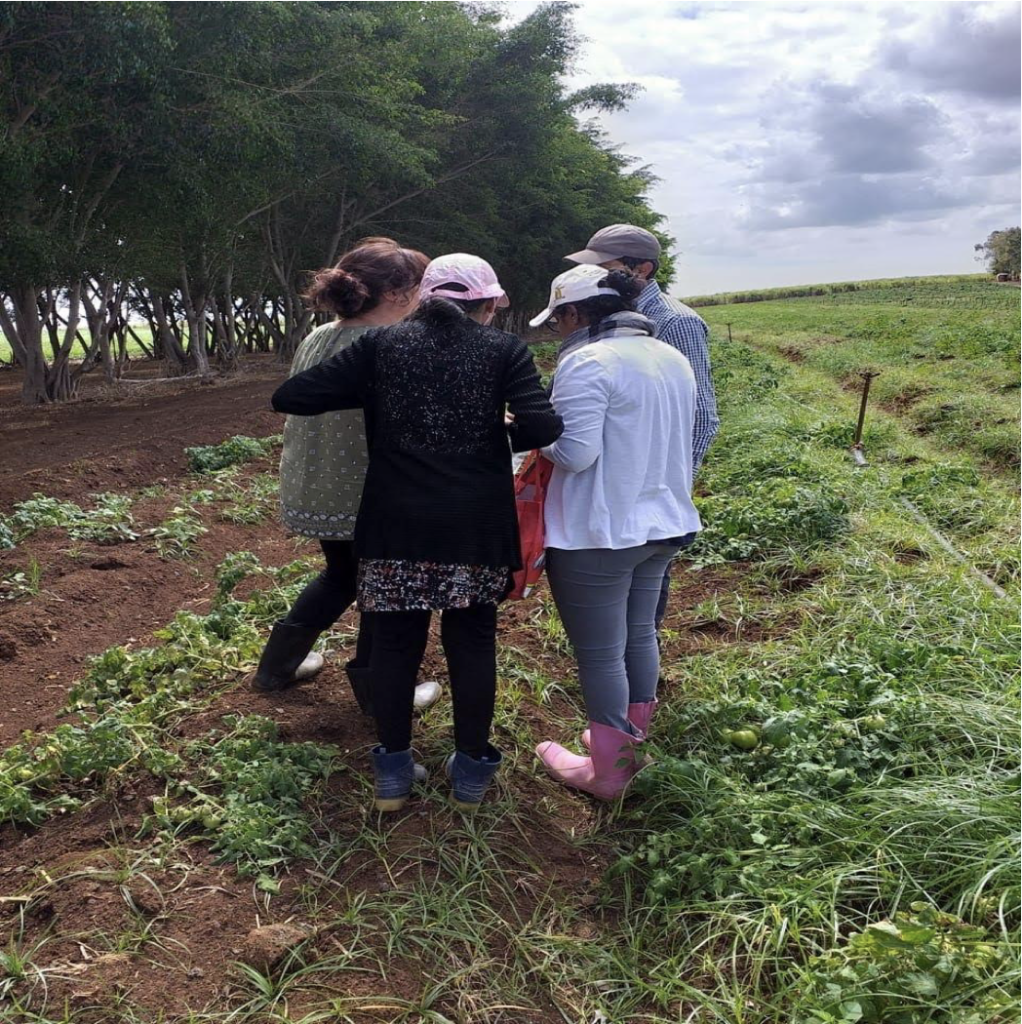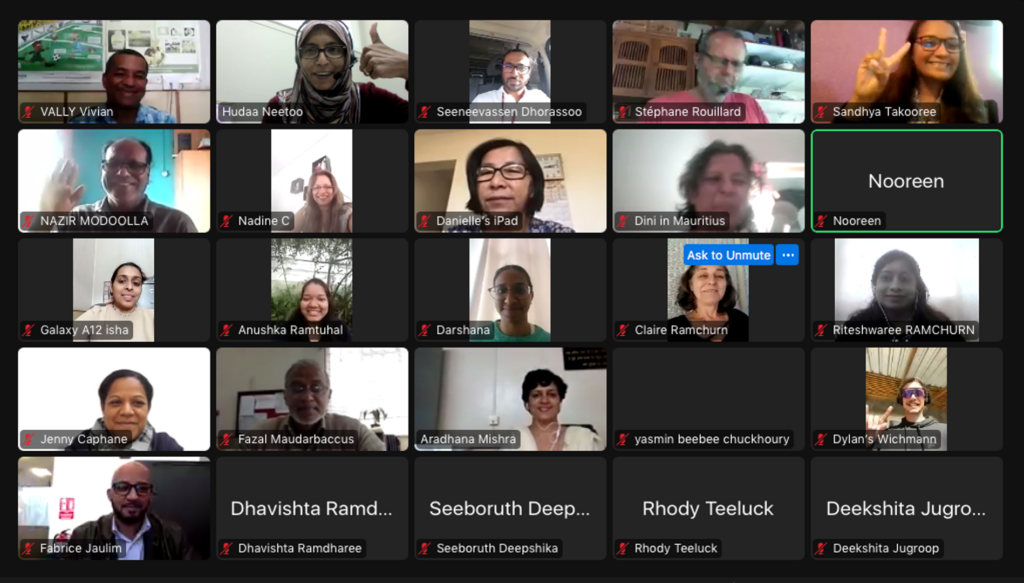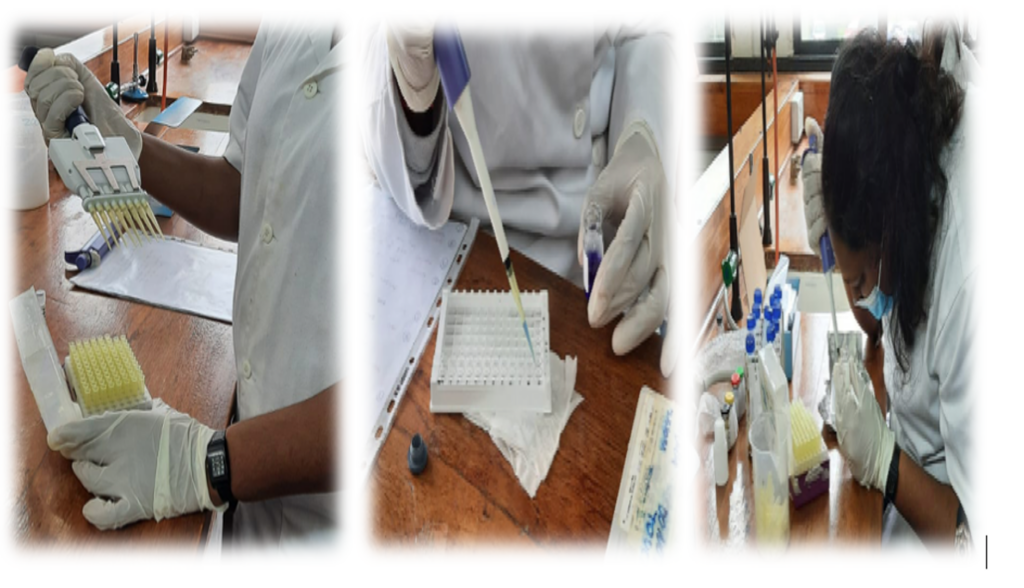Small potato farmer being sensitized on early screening of PVY

Following a survey with potato planters, it was found that 89% of them were aware of the disease agent PVY but were not necessarily aware of the route of infection of PVY (aphid-borne by horizontal transmission between plants, mechanically by infected sap entering through wounds, and vertically through infected tubers). Hence to close the feedback loop, planters were contacted by telephone following the sampling and screening exercise and sensitized on the importance of early screening of tubers prior to planting, early diagnosis of any affected plant in the field, modes of transmission as well as the rogueing method for effective control of the pathogen in the field to avoid propagation into subsequent crop cycles. Hence, this part of the research has highlighted the need for enhanced awareness of planters concerning PVY and the need for agricultural extension officers to sensitize farmers concerning this agent.

One-on-one training of planter on close-up examination of disease symptoms
Building awareness of planters concerning PVY and early methods of detection

A workshop was organized by the Faculty of Agriculture (WP1) and open to various stakeholders from the agricultural sector to disseminate information concerning use of biofertilizers and biopesticides in open-field cultivation as preventive measures against attack by pests and pathogens. The workshop was held virtually during the month of August 2022 and spread over five week days.

Enzyme Linked Immunosorbent Assays (ELISA) protocols were adapted for our food matrices for detection of viral agents. Use of ELISA assay by undergraduate student for virus detection in food






